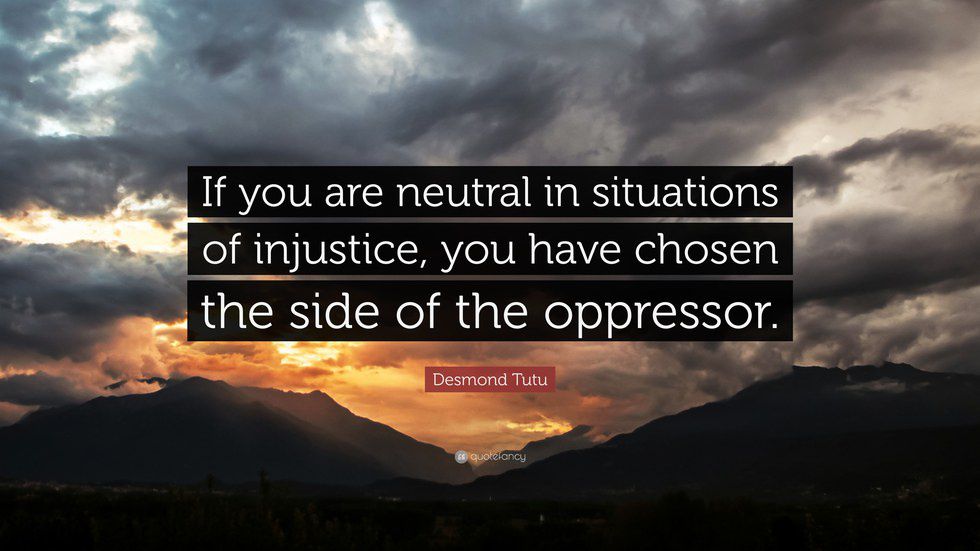I’m sure many of us have seen the popular “safety pin” idea going around, and if you haven’t, here it is, in brief: a safety pin on a visible article of clothing, like a jacket or a backpack, shows that the wearer is a “safe place” for minorities who are oppressed. This rose after the increase in hatred and division, especially white supremacy and bigotry, during and after this past election. If you’re interested in my thoughts post-election, you can read about them here. While the safety pin is a great way to take a stand, the issue is that it’s not actually helping anybody. It might be coming from a place of love and support, but at the end of the day, a safety pin doesn’t do much to support and shield marginalized people from hatred.
The natural response to this is, “What can be done to actually support these people then?” Glad you asked. There’s lots of ways to mobilize against hatred, and none of them are impossible. However, it’s a lot easier to take action when you know how you’re going to do it.
Donate money to organizations and charities.
I know we don’t all have the ability to do this. But if you do, consider donating a couple bucks—maybe the cost of a dinner out, or more if you can—to charities and organizations that provide legal, financial, emotional, or other support to minorities. Here is a list that might be able to get you started.
Create a plan on what to do if you witness discrimination.
Sometimes we don’t always know what to do when we see discrimination happening, and often, it’s so unexpected that we freeze up and don’t do anything at all. Help combat this feeling inside yourself by making an action plan. For example, you can say something like “Leave her alone!” to a person who’s being verbally harassed, and then sit with her/walk with her until she's safe. You can choose to create a safe space for a person who’s experiencing discrimination.
For example, imagine that you’re on the bus and you see someone calling a woman in a hijab slurs. Something that you can do is move over closer to the woman, put yourself physically between her and her harasser, and start a neutral conversation with her, staying beside her and talking to her until the person goes away and she’s safe. This shows the person harassing her that you’re not complicit in their actions and you don’t find their hate acceptable. Of course, it’s important to keep yourself safe in situations like this, but follow your conscience and do the right thing.
Be available for your minority family and friends.
Even if you’re not personally affected by the outcome of this election and some of the backlash that has come with it, you probably have people in your family and social circle that are affected. Let them know that you love and care about them, and ask them if there’s any way you can help them feel safer. Remember that their emotions are valid. Above all else, remind them that you are a safe place for them to come to, and a person who will love them no matter what the political climate dictates.
Supporting marginalized people doesn’t take hundreds of thousands of dollars, or dedicating every waking moment to service. In many cases, it means making small, meaningful gestures, and showing basic human decency and respect to everyone—no matter who they are. Speak out against hatred and bigotry, and stand up for what you believe is right. We’ve all seen this quote, but it’s especially true now:
And by the way, if you still like your safety pin, there’s a solution. Use the safety pin as a reminder to yourself to be supportive and stand up for the rights of others. One suggestion I’ve seen is wearing it on the inside of your jacket, where you can feel it and where it can constantly remind you to use your privilege to shield others from hatred. Consider the safety pin the beginning of the fight, not the end. Because at the end of the day, everyone deserves the same basic human rights.









































